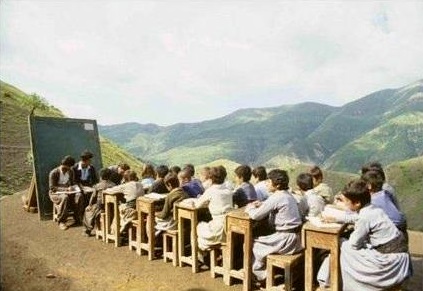Investing in our Future: Students and Teachers Work Together; The common purpose of education is to guide students on to the straight path and help them to make a distinction between light and darkness, right and wrong. It is to encourage students to embrace new thoughts and opinions, raise awareness, suspend superstition, support equality and oppose inequality. A teachers’ main responsibility, in my opinion, is to spread knowledge and fight ignorance. Furthermore, students have to be committed and accountable for their responsibilities- for education is a two-way process.
Throughout my experience as a student with English language teachers in Elementary, Preparatory schools, Tertiary Institutions and University, I have come across so many different types of teachers and can confidently argue that the methods of teaching is often ineffective and fruitless- and that has triggered me to write this article.
Unfortunately, there were several teachers who didn’t respect students’ opinions nor gave them the right to dissent or disagree. In fact, some of my teachers were the main reason behind my colleagues’ weaknesses. To stimulate students, for example, to respond to assignment and exams, they mostly depended on giving marks. However, I think all teachers love their students and the proof for this is that teachers want their students to be doctors, engineers, professors. The problem is more with the system, not individual teachers.
One example of ineffective teaching is forcing students to memorize the subject. Memorization kills the natural talent of students and decreases their ability to argue reasonably. It doesn’t give students the chance to participate, interpret, think, and make judgments- rather it only persuades students to compete dishonestly with their colleagues to get the highest possible mark. In fact, it creates a hostile environment for teaching.
Additionally, memorization suffocates the desire to learn, dampens students’ enthusiasms to be informed and shrinks the willingness to dispute. Hence, a docile or disobedient student is produced with no power to solve problems and face unexpected issues.
When students, for instance, fail to get their teachers approval or cannot achieve their teacher’s acceptance, they face psychological trauma. The worst repercussion might result in resorting to suicide.
In light of the above observation and to give the article a plausible frame, it is better to discuss the mistakes of teaching in the Kurdistan Regional Government’s Basic, Preparatory, Tertiary Institutions and Universities curriculum’s and system. The massive expansion of the Internet and mass media in general which take over every aspect of life including food, drinking, clothes, furniture, health, accommodation, business, and so on, have made the English language fundamental in communication. We are living in a digital world where English dominates.
Traditional methods of teaching, such as not giving the student a chance to correct errors is very apparent and students are treated like an audience and that causes poor imagination and memory in the long term. In addition, a huge emphasis is given to the right answer and the curriculum is teacher-centered and that will also cause more grammatical mistakes and less opportunity to practice.
Another argument that brings forward the problems of teaching is that students have no authority to evaluate the designed syllabus or their teacher’s knowledge, approach and personality. Teachers are seen as God-like figures and individual learning is disregarded; consequently, students are passive receivers.
One of the significant jobs of universities is to prepare students for the market and develop their skills. This can be achieved through having extra activities outside the premeditated curricula and formal classroom learning. For four successive years, we were told that they will open special classes for distinguished students so that other students can be encouraged and the honored students can experience something innovative outside their course boundaries but sadly that didn’t happen.
English language teaching is designed in such a way that memorization and instruction replaces training and involvement. Likewise, listening and writing replace arguing and discussing. Art and sports lessons usually come last in the timetable. Besides, audio-visual aids, pair/group work, game-like exercises are mostly overlooked. Thus and apart from the effect of the mother tongue, loss of concentration, lack of self-education or self-correction, too much teaching but less understanding, fear of making mistakes, not enough information on how to research, are the very obvious traits of Kurdish learners of English and the conventional instruction technique that are implemented in our schools and universities. This will only result in producing powerless students that have no courage to say NO. I am worried about the fact that today’s students are the teacher’s of tomorrow and the teacher’s of today were the students of that out-of-date system.
These and other issues have been around for decades and these observations and comments have achieved consensus approval among erudite teachers and academics. Moreover, I think one of the best ways to overcome these problems is to get a modern curriculum where the teaching process is student-based; a curriculum that has a set of clear guidelines to achieve useful goals. A student-centered curriculum will enable the students to explore, practice and search. It will create competence and spirit among the students and everyone feels appreciated. And the teacher will also learn from the students and the emphasis is on mutual respect and understanding.
To conclude, Kurdistan is emerging from the ashes of a dictatorship into a more civilized region. Kurdish people have fought oppression for several centuries and it is time to re-organize our education system and fight the injustice and corruption in our governmental establishment for a better Kurdistan.

